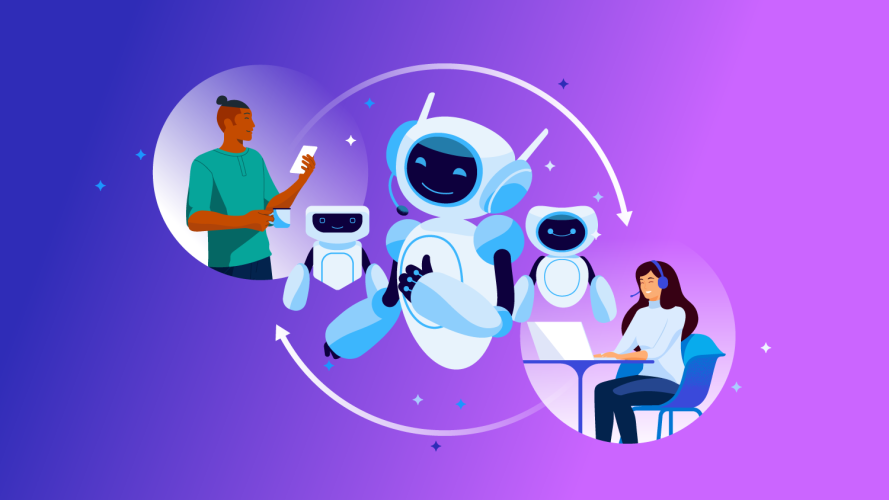Salesforce Slashes 4,000 Jobs After AI Agents Handle Half of Customer Service

Salesforce's Bold AI Shift: 4,000 Jobs Cut as AI Agents Take Over Support
Salesforce, a global leader in enterprise software, has dramatically accelerated its adoption of artificial intelligence by leveraging AI agents to automate half of all customer service interactions[2]. This move, confirmed by CEO Marc Benioff, has enabled the company to reduce its support staff from 9,000 to 5,000 over the past eight months—a reduction unprecedented in its history.
Why It Matters
Salesforce’s integration of AI into its customer service operations marks a milestone for enterprise automation. According to Benioff, the "most exciting" period of his career is fueled by AI-driven efficiency that is not only reshaping internal workflows, but also freeing up resources for critical growth initiatives, such as reconnecting with over 100 million previously neglected customer leads[2]. Salesforce remains San Francisco’s largest private employer, with a workforce of approximately 76,000 worldwide, underscoring the scale of this transformation.
Inside the Transition: AI Agents at Scale
The company’s AI agents now handle an estimated 50% of all support contacts, ranging from basic queries to more complex problem resolution[2]. This shift exemplifies a broader industry movement, where AI systems are trusted not only with repetitive tasks, but also with high-stakes customer engagement. Salesforce claims this has improved response times and customer satisfaction while reducing operational costs significantly.
Economic and Industry Impact
This development signals a new era in contact center technology and workforce composition. While Salesforce’s move is celebrated by tech leaders for its operational efficiency, it also underscores the disruptive potential of AI on traditional employment. AI adoption has contributed to 34% average revenue growth and 38% cost savings across leading firms, according to a recent AWS study[2].
The Road Ahead: Growth, Controversy, and Workforce Strategy
Salesforce’s pivot aligns with a growing two-tier ecosystem in the AI workforce: firms that upskill and automate rapidly, and those struggling to adapt[2]. The company's approach points to a future where human expertise is concentrated in high-value, complex cases, while AI manages routine processes. As Benioff asserts, these changes are intended to "free resources for innovation," but experts and employee advocates caution that companies must balance innovation with responsible transition strategies.
In summary, Salesforce’s AI-driven workforce realignment is a watershed moment—offering a glimpse of how large enterprises might rapidly transform labor structures in the age of advanced automation.
How Communities View Salesforce’s AI-Driven Layoffs
The news of Salesforce cutting 4,000 jobs after deploying AI agents in customer support has sparked heated debate and widespread attention across social media and tech forums.
-
Efficiency & Innovation Advocates (Approx. 40%): Many users, especially on X (formerly Twitter), praise Salesforce’s "bold transformation" as a practical case of AI enabling greater operational efficiency (@TechOptimist, @crmAIadvisor). Proponents highlight the company’s ability to re-engage 100M leads as proof of AI’s business value, with Redditors on r/artificial noting, "This is what AI should be—freeing people to do more creative, strategic work."
-
Workforce Displacement Critics (Approx. 35%): A sizable portion expresses concern about rapid automation leading to loss of stable jobs in tech. Several posts on r/technology and by users like @LaborFuture point to "the human cost" and call for ethical frameworks and retraining programs. Employee advocates warn this could "set a precedent for AI-driven layoffs at scale."
-
Skeptics & Pragmatists (Approx. 15%): Others voice skepticism about AI’s ability to handle complex customer queries, questioning quality and personalization. On Reddit, users cite mixed experiences with AI support bots—"Great for simple stuff, but useless for nuance."
-
Industry Watchers & Experts (Approx. 10%): Industry analysts such as @danielnewmanUV and enterprise CEOs weigh in. Some urge caution, noting that only companies as large and cash-rich as Salesforce can manage such a pivot, while others predict similar moves at rival firms in the next year.
Overall, sentiment is split: many view Salesforce’s move as inevitable and even necessary, but concerns about worker transition and AI’s real-world limitations remain front and center.